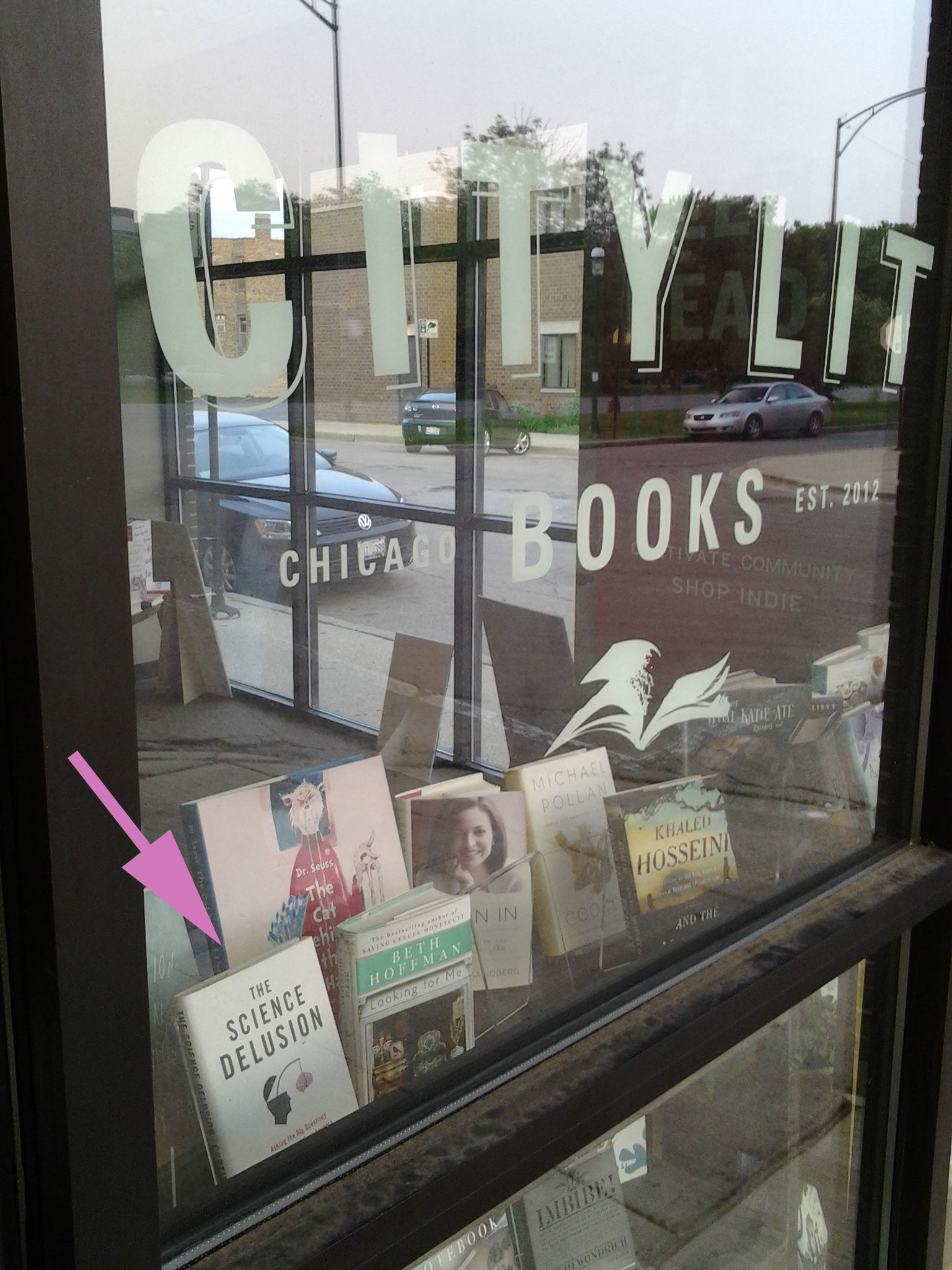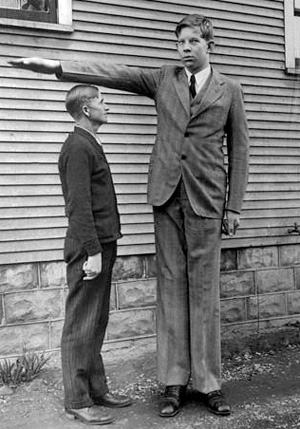Curtis White will be reading in Chicago this Thursday
At City Lit in Logan Square, at 6:30pm. Curt will be reading from his new book, The Science Delusion: Asking the Big Questions in a Culture of Easy Answers, which just came out through Melville House.
I did my Master’s degree with Curt at Illinois State University, and he’s one of the smartest and best writers I know. (He’s one of the two profs who first got me reading Viktor Shklovsky.) In the 1980s, he and Ron Sukenick transformed Fiction Collective into FC2, and I learned about FC2 (and ISU) partly through the two “sampler collections” they put out (something I wish more presses did). Curt’s also written seven works of fiction, including The Idea of Home and Memories of My Father Watching TV, and now five works of nonfiction, including his infamous attack on Terry Gross (among other things), The Middle Mind. (He may not have made Gross cry, but he sure pissed off a lot of her fans.)
I’m only halfway through this new book (and will be writing more about it later), but so far I’d describe it as an attack on the idea, currently very en vogue, that scientific knowledge is the only or most superior form of knowledge, and thus the only means of accounting for what it means to be human. Right from the start Curt shows how much of science’s own knowledge is shoddy and unexamined. For example, it’s not uncommon to hear scientists like Stephen Hawking claim that the universe is beautiful, but how do they understand beauty? Not very well, Curt argues. Like in The Spirit of Disobedience, Curt demonstrates how other intellectual traditions—specifically Romanticism, which he traces through the Beats and punk—offer a way around and past some of the more inane debates consuming so many today, such as “science vs. religion.” Plus he’s funny, too.
If you’re in Chicago this Thursday, come by and hear Curt! Discussion will follow during which you can ask him embarrassing questions.
Quick Thoughts on the Penguin Random House Merger

Hi, this post was in my drafts. For some reason I was too shy to post it. So it’s old news as of like February 20. So sue me.
Naturally Dennis Johnson has some dreadful things to say about the Penguin Random House merger, calling it “one of the most important publishing and cultural stories of our lifetime.” He points to the lack of coverage in the news as a big downplay, and the scandalous lack of government oversight as something that’s hard not to see as a conspiracy.
The first page of André Schiffrin’s The Business of Books discusses how, when Random House acquired AA Knopf in 1960, the DOJ started looking into the merger—until they realized that the combined companies would be worth only $15 million. Why’d they take an interest? Because it was front page news, which isn’t the case anymore (though the combined value of Penguin Random is $3 billion). Why is this Times article, about the US regulator’s approval of the merger, so short? READ MORE >
Tao Lin’s Big Kid Book Deal
I hope this is the last time I’ll find myself writing about Tao Lin. In July I wrote a lengthy story for The Morning News that delved into Lin’s publishing venture, Muumuu House, and looked at a few of the prominent (allowing for a loose definition of “prominent”) writers in his literary cadre. (The post engendered quite a comment chain on this very site.) Mere weeks later, Lin landed a $50,000 book deal with Vintage for his next novel. And that was when someone commented on the Morning News piece that they’d be “interested in an update on all of this” (presumably they meant an update from me) and wondered whether his deal would “change things.”
It does change things, yes. The fact that his next novel (it’s tentatively called Taipei, Taiwan) will come out under the Vintage label means that, like it or not, it’s going to get a lot more notice than his books have had in the past when published by Melville House. And that’s no knock on Melville House, which does a fabulous job both with publicity (the Moby Lives blog is fun and occasionally gets good pickup on Twitter etc.) and with the aesthetic look of its titles (see: the Art of the Novella series). But it’s still a tiny press. A book published by Vintage will be seen, not just by critics that have managed to avoid Lin and maybe still haven’t even heard of him, but also by mainstream readers, the Barnes & Noble shoppers who have definitely not heard of him and who read the Stieg Larsson trilogy. This isn’t to say they’ll pick up the novel and buy it, but it may catch their eye, they’ll take a look, and now they’ll know who or what a Tao Lin is.
The Believer Book Award shortlist. Local favorites S P R A W L and The Orange Eats Creeps are included. Melville House is presenting a new thing, The Indie Booksellers Choice Awards. John Ashbery translated Rimbaud’s Illuminations, and that’s coming out in May, and here’s a rad excerpt over at alan’s blog.
Fantagraphics to the Rescue
Stephen Dixon, in a new interview with Sean P. Carroll at Bookslut, says:
Fantagraphics became involved because Melville House, the publisher of three of my novels, didn’t want to bring out the three collections in one book. They thought it would be too expensive and a losing proposition. I thought the collections would generate no interest if published one at a time. That publishing 62 stories, never in book form and all rewritten, except for the unfinished ones still in manuscript form, which I finished for the collection, would be interesting and unusual if not unique as a body of work.
This is not the first time the people at Fantagraphics have proved themselves to be heroes of literature. Their catalog includes Joe Sacco’s Palestine, the Hernandez Brothers’ Complete Love and Rockets Library, Daniel Clowes’s Ghost World, R. Crumb’s The Book of Mr. Natural, and Chris Ware’s ACME Novelty Library. New releases in 2011 include Usagi Yojimbo: The Special Edition, Dave Cooper’s Bent (with an introduction by Guillermo del Toro), and David B.’s The Littlest Pirate King. You can find out more about all this goodness at http://www.fantagraphics.com/.
Word Spaces (19): Lee Rourke
We bought this place in east London last year. The study isn’t finished yet, so I do most of my writing on the dining room table. It mostly always looks like this – unless our two cats have been on the table and knocked the books on to the floor, which is something they do from time to time. I know they enjoy doing this when I am out of the room. It doesn’t bother me that much, because cats will be cats. I didn’t write The Canal in this room; we moved here after I had finished it. I wrote The Canal in various cafés and pubs in Hackney, east London and I’m afraid I didn’t take photos of them.

I write longhand and then edit as I type it up on to my laptop. My laptop is quite old now and sometimes gets very tired, but it still does the job, so I can’t really complain. READ MORE >
August 13th, 2010 / 11:44 am
Lee Rourke in New York
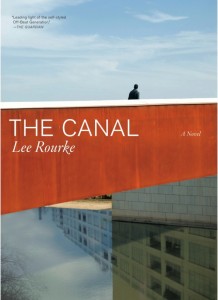 All you Brooklyn dwellers should come out to Melville House tonight and be the first kids on the F train to read Lee Rourke’s The Canal, a strange explosion of a book that is out as of today. Lee is in town from London & there will be a launch party tonight at Melville’s space in Dumbo, complete with a reading, beer, wine, snacks and people. 7 pm. 145 Plymouth St. Come say hi.
All you Brooklyn dwellers should come out to Melville House tonight and be the first kids on the F train to read Lee Rourke’s The Canal, a strange explosion of a book that is out as of today. Lee is in town from London & there will be a launch party tonight at Melville’s space in Dumbo, complete with a reading, beer, wine, snacks and people. 7 pm. 145 Plymouth St. Come say hi.
An interview I did with Lee will be posted here in the not so distant future. Today? Tomorrow? Who can be sure?
First Annual Book Trailer Awards: The Moby’s
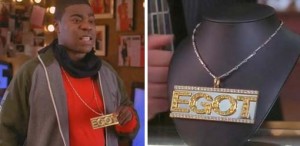 I just got an email from the fine folks at Melville House inviting me and my “colleagues” to this event and since I work for myself I guess that means you people. You can nominate trailers here. (Formal attire!)
I just got an email from the fine folks at Melville House inviting me and my “colleagues” to this event and since I work for myself I guess that means you people. You can nominate trailers here. (Formal attire!)
On Zachary German’s “Eat When You Feel Sad”
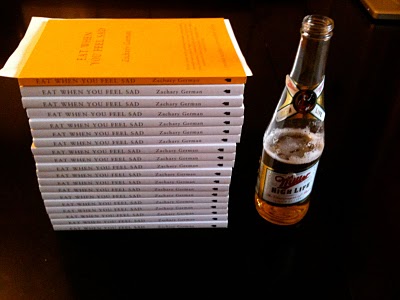
[NOTE: The reviewer discloses several personal acquaintances, and asserts his unequivocal subjectivity.]
A Few Moments of Sleeping and Waking
.
When I was a kid my parents had a no-censorship policy on my reading material. The only exception they ever made to this rule was when I wanted to read a book that my dad was reading, called American Psycho. This was sometime in the mid ’90s, when the book was out of print. Dad had gotten it from a woman who worked in his office, who herself had found it on a website that specialized in hard-to-find books—probably the first person we ever knew who had used the internet to actually get something. I remember asking him about it, and that my interest was immediately piqued by his no-doubt abridged description. I remember asking to read it, and how, after much deliberation (which was baffling in itself, because I hadn’t meant “can I” so much as “when can I”) he finally told me, not without evident regret, that he would not let me read the book. “It’s not the content itself,” he said, “so much as that I don’t think you have the context to understand the content for what it is.” I must have expressed some outrage—this was unprecedented, after all—and he, concerned I might sneak a peek despite the ban, hid the book so well that we never found it again, even years later, when we emptied that house out and moved.
I started college in the summer of 2000, a few months after the film version of American Psycho debuted at Sundance. Now the book was everywhere. You could just walk into the store and buy a copy—with Christian Bale’s face on the cover, no less. I didn’t go see the movie in theaters, but I went and got the book. And I’ll tell you something—my father was absolutely right. Even at eighteen I didn’t really understand the book for what it was, namely the darkest of satires, mostly because I didn’t know enough about what was being satirized: Wall Street culture, the ‘80s in general, etc. So I took the book absolutely seriously, and treating it in this way made for one of the single most disturbing reading experiences I had ever had before, or have had since.
Zachary German would have been eleven years old the year American Psycho was released in theaters, and though I don’t know whether he saw the film before he read the book, it’s highly likely that a trailer for the film alerted him to the book’s existence in the first place. He would have understood going in, then, that the ultra-violence was a kind of cartoonish excess, and that the whole thing was to be understood (on some level) as a comedy, but he would have probably been still too young to fully grok how (or even that) the pathological cataloging of brand-names was meant as an extension of the central “joke.”
March 24th, 2010 / 3:56 pm
The Confessions of Noa Weber (Melville House) wins Translated Book Award
 [Here’s another one for the “I know it’s a press release but I think you’ll actually be interested” files. Congrats to Melville House, the author, the translator, and everyone else to whom congrats are due; and a hearty cheers to Liran Golod, tireless arts champion at the Israeli Consulate, provider of this notice. – JT]
[Here’s another one for the “I know it’s a press release but I think you’ll actually be interested” files. Congrats to Melville House, the author, the translator, and everyone else to whom congrats are due; and a hearty cheers to Liran Golod, tireless arts champion at the Israeli Consulate, provider of this notice. – JT]
New York, March 11, 2010 – Melville House’s The Confessions of Noa Weber by Gail Hareven, translated from the Hebrew by Dalya Bilu, has won the 2010 Best Translated Book Award for Fiction. Organized by Three Percent at the University of Rochester, the Best Translated Book Award is the only prize of its kind to honor the best original works of international literature and poetry published in the U.S. over the past year. This year the awards ceremony was hosted by Manhattan independent bookstore Idlewild Books.
“We’re delighted to receive this award on behalf of the author, Gail Hareven,” said co-publisher Dennis Loy Johnson, “as it represents what we see as part of our mission at Melville House: Not just to publish both fiction and nonfiction in translation for the sake of essentially preserving it, as if it were something on the verge of going extinct. That strikes us as a way of further ensuring its obscurity. Rather, we see it as our mission to trumpet that work loudly, and to work aggressively to get that work in the hands of as many people as possible, especially those who would not normally encounter translated literature.”
READ MORE >

